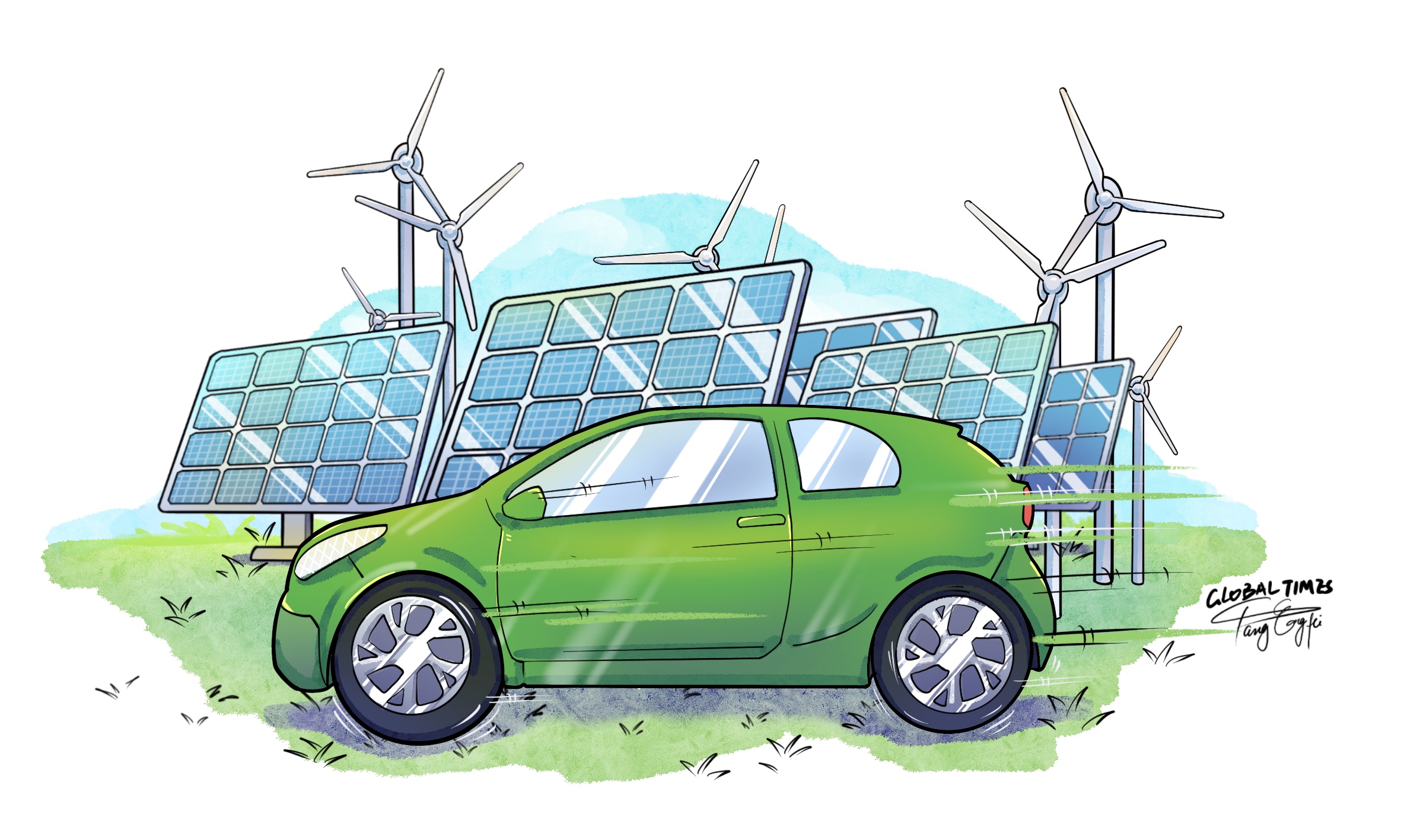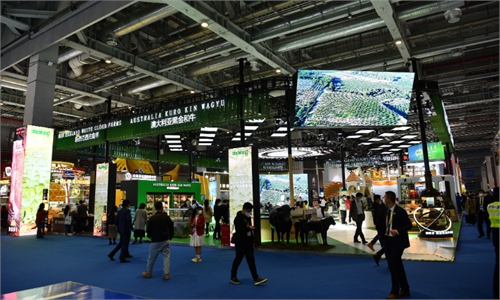
Illustration: Tang Tengfei/GT
Sales of Chinese-made vehicles in Australian market jumped 61 percent year-on-year in 2022 with electric vehicles (EVs) leading the charge, according to Australian Federal Chamber of Automotive Industries data. The chief executive of Australia's Electric Vehicle Council, Behyad Jafari, predicted that the rise of Chinese automakers will probably quicken the country's transition off petrol- and diesel-powered vehicles, the British newspaper The Guardian reported on Wednesday.
Australians are increasingly willing to buy Chinese-made cars, including Chinese and foreign brands, because China's complete industrial chain and innovative enterprises provide them with cost-effective products. The sales growth of Chinese-made EVs in the Australian market is expected to pick up pace, which had already reflected in December sales figures that doubled from the same period of 2021.
The surge in the sales of Chinese-made EVs in the Australian market is a microcosm of the cooperation potential between the two sides in the field of new energy. This trend fully demonstrates that as Chinese enterprises speed up innovation, the advantages of China's manufacturing industry will be further highlighted. The highly complementary China-Australia economic and trade exchanges will see more opportunities in more emerging industries, which will help Australia better promote green growth.
When Australian prime minister Anthony Albanese came into power in May 2022, he pledged to transform the country into a "renewable energy superpower." The Albanese government pledged to cut carbon emissions by 43 percent by 2030 based on 2005 emissions levels, boost renewables, boost demand for EVs through tax breaks and help build community-owned solar power and battery projects. Over the past few months, however, Australian media have been reporting setbacks to its energy transition plans.
Australia's plans to overhaul its strained power grid are running into community protests that threaten to slow investments in wind and solar farms needed to replace retiring coal-fired power generation over the next 25 years, Reuters reported in last June. Australia's plan to shift away from coal to renewable energies also reportedly faces questions from analysts of rising costs during the transition period amid global energy prices surge.
The biggest challenge of Australia's energy transition is how to deal with existing abundant fossil energy reserves. Coal power accounts for more than 50 percent of Australia's total power generation. Australia is one of the largest coal producing countries in the world, and there are many interest shareholders behind it. Therefore, how to rapidly and effectively reduce the proportion of coal power in the energy transition is a big problem. In terms of coal and coal power generation, Australia and China can have a lot of technical exchanges and cooperation in the clean and efficient utilization of coal and the reduction of overcapacity.
Moreover, Australia has many advantages in clean energy technology, such as solar photovoltaics, but it does not have much advantages in manufacturing of relative products. With the world's largest solar panel manufacturing capacity and sophisticated wind power technology, China has the potential to cooperate extensively with Australia in these areas.
At present, many photovoltaic panels in Australia are mainly produced by Chinese companies, and many hydropower projects are also invested by Chinese companies. China's capital and technology can help Australia develop clean energy rapidly, especially as the Albanese administration is stressing energy transition, there will be more demand for clean energy and related products in the future, which is an opportunity for companies from both sides.
As Australia's largest trading partner and a leading player in new energy sector, China has lot to offer to help the Australian economy achieve greener and sustainable growth. Even if it is for Australia's economic interests, it's hoped Australia will cooperate with China and work toward the goal of mutual benefit and win-win results, so as to promote the rebuilding of mutual trust between the two countries and bring the relationship back on track, creating good conditions for expanding mutually beneficial cooperation in various fields.
The author is a reporter with the Global Times. bizopinion@globaltimes.com.cn



